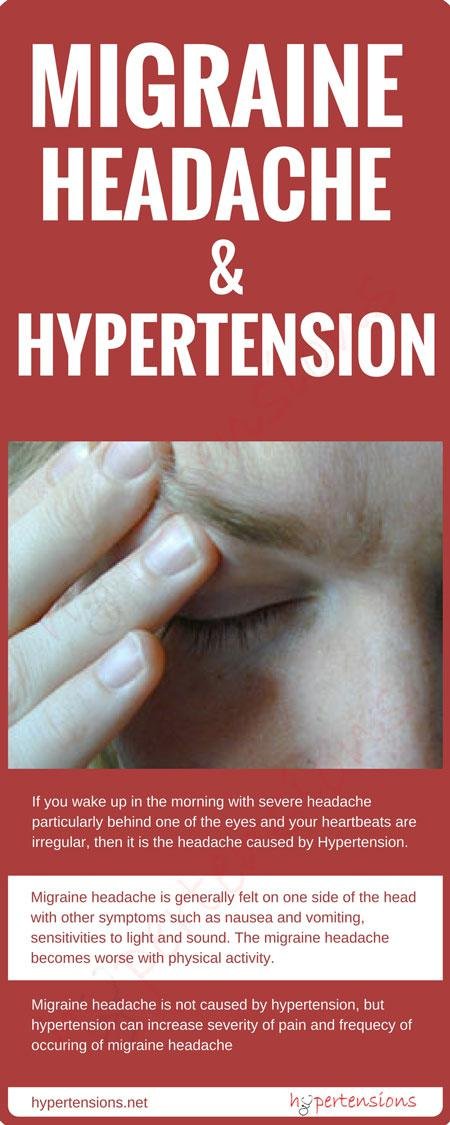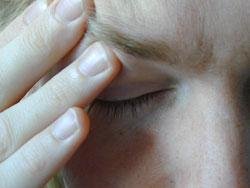Suffering from both migraines and high blood pressure (hypertension)? You're not alone. While the exact link is still being explored, research suggests a connection between these two conditions.
This comprehensive article explores how migraines and hypertension can influence each other, and provides valuable information on managing both for better health. Discover natural remedies, medications, and key lifestyle changes that can bring relief and improve your quality of life.
Headaches and High Blood Pressure
Headaches and high blood pressure are definitely connected. Waking up with a throbbing head, especially behind one eye, along with a racing heart, dizziness, and anxiety can be a red flag for hypertension headaches. These often indicate dangerously high blood pressure and require immediate attention (see a blood pressure chart for reference).
The good news? Hypertension headaches usually respond well to medication or simple relaxation techniques that lower blood pressure. They can also occur occasionally throughout the day and differ significantly from migraine headaches. So, if you're experiencing frequent headaches, it's wise to check your blood pressure.
Here's the thing: high blood pressure is a sneaky culprit. It often shows no symptoms for years, silently damaging your heart, brain, kidneys, and eyes. Regular blood pressure checks are crucial, even if you feel fine. Doctors routinely monitor it during visits to catch any potential problems early, like high blood pressure and its connection with migraines.
The best part? Many natural remedies can help lower blood pressure. Doctors often recommend lifestyle changes and dietary adjustments before resorting to medication, which can have side effects and become lifelong commitments. So, prioritize those natural methods – they work wonders when followed consistently!
Migraines: A Different Story
Now, let's talk migraines. These are a whole different ball game compared to regular headaches. Migraines come with a whole entourage of unwelcome guests – nausea, vomiting, sensitivity to light and sound, and worsening with any physical activity. An attack can even happen without a headache!
Here's the key takeaway: while there isn't conclusive proof that high blood pressure causes migraines, recent research suggests migraines are more neurological than vascular (blood vessel related) in nature.
High Blood Pressure After a Migraine Attack
However, there's an interesting twist. While high blood pressure isn't the trigger, research suggests that some people may experience temporary spikes in blood pressure following a migraine attack. This is likely due to the body's response to the pain and inflammation associated with a migraine.
These frequent spikes, if you experience chronic migraines, can weaken your blood vessels over time, potentially leading to long-term high blood pressure.
This, in turn, can be a recipe for disaster. Chronic high blood pressure can damage your kidneys and increase your risk of heart disease, stroke, and other cardiovascular issues. So, keeping your blood pressure under control is vital.
Does Stress Trigger Migraines and High Blood Pressure Attacks? Stress is a known trigger for both migraines and high blood pressure spikes. Finding healthy ways to manage stress can be crucial for those who suffer from either condition.
The Double Whammy: When Migraine and Hypertension Collide
Here's another interesting connection between migraine and hypertension: although high blood pressure doesn't cause migraines, it can definitely make them worse. If you have both conditions, your migraines might be more frequent and severe. This double whammy also ups your risk of stroke.
There's no cure for migraines, but some medications can ease the pain. Interestingly, some medication for high blood pressure has also shown success in reducing migraines. This might be because controlled blood pressure reduces the pain associated with migraines. So, while it's not a direct fix, managing your blood pressure can indirectly improve your migraine situation.
Can High Blood Pressure Worsen Migraines? Absolutely! High blood pressure can worsen migraine symptoms, making them more frequent and severe.
Differentiating Migraine from a Hypertension Headache
While both can cause headaches, there are key differences. Hypertension headaches typically occur with high blood pressure readings and lack the other symptoms associated with migraines, like nausea and sensitivity to light. Differentiating between the two can be crucial for proper treatment.
How to Lower Blood Pressure to Manage Migraines
There are several ways to lower blood pressure and potentially reduce migraine frequency and severity. These include lifestyle changes like stress management, regular exercise, and a healthy diet for people with migraine and hypertension. Doctors may also recommend medication to lower blood pressure. It's important to consult a doctor to determine the best approach for you.
Natural Remedies for Both Migraine and High Blood Pressure

While there's no one-size-fits-all cure, some natural remedies may help manage both conditions. These can include stress reduction techniques, maintaining a healthy weight, and consuming a balanced diet rich in fruits, vegetables, and whole grains.
Diet for People with Migraine and Hypertension
Eating a healthy diet plays a vital role in managing both migraine and high blood pressure. Here's what to focus on:
- Fruits, vegetables, and whole grains: These are rich in essential vitamins, minerals, and fiber, which can help regulate blood pressure and potentially reduce inflammation associated with migraines.
- Limited processed foods: Processed foods are often high in sodium, unhealthy fats, and added sugars, all of which can contribute to high blood pressure.
- Healthy fats: Include omega-3 fatty acids found in fatty fish, nuts, and seeds, as these may have benefits for both migraine and heart health.
- Moderate salt intake: While some people with hypertension may need to strictly limit salt, a moderate reduction for most is beneficial. Consult your doctor about the right amount for you.
Lifestyle Changes to Reduce Migraines and High Blood Pressure
Here are some lifestyle modifications that can significantly improve your well-being if you have migraine and hypertension:
- Regular exercise: Aim for at least 30 minutes of moderate-intensity exercise most days of the week. Exercise helps manage weight, a risk factor for both conditions, and may reduce migraine frequency.
- Maintain a healthy weight: Excess weight can put a strain on your heart and blood vessels, worsening both migraine and hypertension.
- Stress management: Stress is a major trigger for both migraines and high blood pressure. Techniques like yoga, meditation, and deep breathing can help manage stress and improve overall health.
- Adequate sleep: Aim for 7-8 hours of quality sleep each night. Poor sleep can worsen both migraines and blood pressure control.
- Limit alcohol and caffeine: Excessive alcohol and caffeine consumption can contribute to high blood pressure and may trigger migraines in some individuals.
Blood Pressure Medication Causing Migraines
Some medications used to treat high blood pressure can have side effects like headaches or migraines. If you experience these side effects, talk to your doctor about alternative medications. It's important to never stop taking your blood pressure medication without consulting a doctor.
Long-Term Effects of Chronic Migraine and High Blood Pressure
Both chronic migraine and high blood pressure can have serious long-term health consequences. Chronically high blood pressure can damage organs and increase the risk of heart disease, stroke, and kidney problems. Frequent migraine attacks can significantly impact quality of life.
The Bottom Line
While high blood pressure doesn't directly cause migraines, the two conditions can be linked. High blood pressure can worsen migraines, and chronic migraines can potentially lead to long-term high blood pressure. Taking control of your health through a healthy lifestyle, stress management, and proper medical management of both conditions is crucial. Remember, consistency is key! Don't hesitate to talk to your doctor if you have any concerns about migraines, high blood pressure, or their potential connection.

